|
|
Albert Roussel (Composer) |
|
Born: April 5, 1869 - Tourcoing, Departement du Nord, France
Died: August 23, 1937 - Royan, France |
|
Life |
|
Albert (Charles Paul Marie) Roussel was an outstanding French composer and teacher. Orphaned as a child, he was educated by his grandfather, mayor of his native town, and after the grandfather's death, by his aunt. He studied academic subjects at the College Stanislas in Paris and music with the organist Stoltz; then studied mathematics in preparation for entering the Naval Academy; at the age of 18, he began his training in the navy; from 1889 to August 1890 he was a member of the crew of the frigate Iphigénie, sailing to Indochina. This voyage was of great importance to Roussel, since it opened for him a world of oriental culture and art, which became one of the chief sources of his musical inspiration. He later sailed on the cruiser Devastation; received a leave of absence for reasons of health, and spent some time in Tunis; was then stationed in Cherbourg, and began to compose there. In 1893 he was sent once more to Indochina.
Albert Roussel resigned from the navy in 1894 and went to Paris, where he began to study music seriously with Eugène Gigout. In 1898 he entered the Schola Cantorum in Paris as a pupil of Vincent d'Indy; continued this study until 1907, when he was already 38 years old, but at the same time he was entrusted with a class in counterpoint, which he conducted at the Schola Cantorum from 1902 to 1914; among his students were Satie, Golestan, Le Flem, Roland-Manuel, Lioncourt, and the young Edgard Varèse. In 1909 Roussel and his wife, Blanche Preisach-Roussel, undertook a voyage to India, where he became acquainted with the legend of the queen Padmavati, which he selected as a subject for his famous opera-ballet. His choral symphony Les Evocations was also inspired by this tour.
At the outbreak of World War I in 1914, Albert Roussel applied for active service in the navy but was rejected, and volunteered as an ambulance driver. After the Armistice of 1918, he settled in Normandy and devoted himself to composition. In the autumn of 1930 he visited the USA. Another student of Roussel's was Bohuslav Martinů (after the war and his own apprenticeship, and starting in 1923). Roussel died in the town of Royan, (Charente-Maritime department), in western France, in 1937, the same year that his countrymen Maurice Ravel and Gabriel Pierné died. |
|
Music |
|
Albert Roussel began his work under the influence of French Impressionism, with its dependence on exotic moods and poetic association. He eventually found a personal style which was more formal in design, with a strong rhythmic drive, and with a more distinct liking for functional tonality than is evident in the work of his more famous contemporaries (for instance Debussy, Ravel, Satie, and Igor Stravinsky). The sense of formal design asserted itself in his symphonic works; his Suite (1926) signalizes a transition toward neo-Classicism; the thematic development is vigorous, and the rhythms are clearly delineated, despite some asymmetrical progressions; the orchestration, too, is in the Classical tradition. Roussel possessed a keen sense of the theater; he was capable of fine characterization of exotic or mythological subjects, but also knew how to depict humorous sitUations in lighter works.
Albert Roussel's training at the Schola Cantorum, with its emphasis on rigorous academic models such as Giovanni Pierluigi da Palestrina and J.S. Bach, left its mark on his mature style, which is characterized by contrapuntal textures. In comparison with the subtle and nuanced style of other French composers like Gabriel Fauré or Claude Debussy, Roussel's orchestration is rather heavy. While the stylistic and orchestral aesthetic of so-called "French" music was one which Roussel did not fully share, it is nevertheless true that Roussel was never a mere copyist of Teutonic models. Certainly, in contrast with the sound of the German romantic orchestral tradition (such as Anton Bruckner or Gustav Mahler), Roussel's manner could hardly be called heavy at all.
Roussel was also interested in jazz, and wrote a piano-vocal composition entitled Jazz dans la nuit, similar in its inspiration to other jazz-inspired works such as "Blues" second movement of Maurice Ravel's Violin Sonata, or Darius Milhaud's La Création du Monde).
Roussel's most important works are the ballets Le festin de l'araignée, Bacchus et Ariane, and Aeneas and the four symphonies (of which the Third, in G minor, and the Fourth, in A major, are highly regarded and epitomize his mature neoclassical style). His other works include numerous ballets, orchestral suites, a piano concerto, a concertino for cello and orchestra, a psalm setting for chorus and orchestra, incidental music for the theatre, and much chamber music, solo piano music, and songs.
Arturo Toscanini included the suite from the ballet Le festin de l'araignée in one of his broadcast concerts with the NBC Symphony Orchestra. René Leibowitz recorded this suite in 1952 with the Paris Philharmonic, and Georges Prêtre recorded this same music with the Orchestre National de France for EMI in 1984. |
|
Works |
|
All 1st performances in Paris unless otherwise given).
Dramatic:
Le marchand de sable qui passe, incidental music, Op. 13 (Le Havre, December 16, 1908)
Le festin de l'araignee, ballet-pantomime, Op. 17 (1912; April 3, 1913)
Padmavati, opera-ballet), Op. 18 (1914-1918; June 1, 1923)
La naissance de la lyre, lyric opera, Op. 24 (1923-1924, July 1, 1925)
Sarabande, ballet music (June 16, 1927)
Bacchus et Ariane, ballet (1930; May 22, 1931; 2 orchestral suites: No.1, April 2, 1933; No.2, February 2, 1934)
Le testament de la tante Caroline, opéra-bouffe (1932-1933; Olomouc, November 14, 1936)
Aéneas, balllet, Op. 54 (Brussels, July 31, 1935)
Prelude to Act 2 of Le quatorze juillet, incidental music (July 14, 1936)
Elpénor for Flute and String Quartet, radio music, Op. 59 (1047; n.d.)
Orchestral:
Marche nuptiale (1893)
Resurrection, symphonic prelude (May 17, 1904)
Vendanges (1904; April 18, 1905; not extant)
4 symphonies:
- No. No. 1 in D minor, Le poeme de laforet, Op. 7 (1904-1906; 1st complete performance, Brussels, March 22, 1908)
- No. No. 2 in B-flat major, Op. 23 (1919-1821; March 4, 1922)
- No. No. 3 in G minor, Op. 42 (1929-30; Boston, October 24, 1930)
- No. No. 4 in A major, Op. 53 (1934; October 19, 1935)
Evocations pour orchestra, Op. 15 (1910-1911; May 18, 1912)
Pour unefite de printemps, symphonic poem (1920; October 29, 1921)
Suite for Orchestra in F major, Op. 33 (1926; Boston, January 21, 1927)
Concerto for Small Orchestra (1926-1927; May 5, 1927)
Piano Concerto in G major, Op. 36 (1927; June 7, 1928)
Little Suite (April 11, 1929)
A Glorious Day for Military Band (1932; July 1933)
Sinfoniena for Strings, Op. 52 (November 19, 1934)
Rapsodie jlamande (Brussels, December 12, 1936)
Cello Concertino, Op. 57 (1936; February 6, 1937)
Chamber:
Fantaisie for Violin and Piano (1892; not extant)
Andante for Violin, Viola, Cello, Op. 51, and Organ (1892; not extant)
Horn Quintet (February 2, 1901)
1 unnumbered violin sonata (May 5, 1902)
2 numbered violin sonatas:
- No. 1 in D minor, Op. 11 (1907-1908; October 9, 1908; revised 1931)
- No. 2 in A major, Op. 28 (1924; October 15, 1925)
Piano Trio in E-flat, Op. 2 (1902; April 14, 1904; revised 1927)
Diverlissement for Wind Quintet and Piano, Op. 6 (April 10, 1906)
Impromptu for Harp (April 6, 1919)
Fanfare pour un sacre pai'en for Brass and Drums (1921; April 25, 1929)
Joueurs de Flûte for Flute and Piano, Op. 27 (1924; January 17, 1928)
Ségovia for Guitar, Op. 29 (Madrid, April 25, 1925)
Serenade for Flute, Violin, Viola, Cello, and Harp, Op. 30 (October 15, 1925)
Duo for Bassoon aCello or Double Bass (1925; December 23, 1940)
Trio for Flute, Viola, and Cello, Op. 40 (October 29, 1929)
String Quartet, Op. 45 (1931-1932; Brussels, December 9, 1932)
Andante and Scherzo for Flute and Piano (Milan, December 17, 1934)
Pipe for Flageolet and Piano (1934)
String Trio, Op. 58 (1937)
Andante for Oboe, Clarinet, and Bassoon (November 30, 1937)
Elpenor for flute and string quartet, Op. 59
Piano:
Des heures passant (1898)
Conte a fa poupee (1904)
Rustiques (1904-1906; February 17, 1906)
Suite in F-sharp minor, Op. 14 (1909-1910; January 28, 1911)
Sonatine, Op. 16 (1912; January 18, 1913)
Petit canon perpetuel (1913)
Doute (1919; May 5, 1920)
L 'accueil des muses (in memoriam Debussy) (1920; January 24, 1921)
Prelude and Fugue (1932-1934; February 23, 1935)
3 pieces (1933; April 14, 1934)
Organ:
Prelude and Fughetta (1929; May 18, 1930)
Vocal:
2 madrigals for Chorus (1897; May 3, 1898)
Deux melodies for Voice and Piano or Orchestra (1919; orchestral version, December 9, 1928)
Madrigal aux muses for Women's Voices (1923; February 6, 1924)
Deux poemes de Ronsard for Voice and Flute (No.1, May 15, 1924; No.2, May 28, 1924)
Le bardit de francs for Men's Voices, Brass, and Percussion ad libitum (1926; Strasbourg, April 21, 1928)
Psalm LXXX for Tenor, Chorus, and Orchestra, Op. 37 (1928; April 25, 1929)
Many songs for Voice and Piano. N. Labelle ed. a Catalogue raisonne de l'oeuvre d'Alberl Roussel (Louvain-Ia-Neuve, 1992) |
|
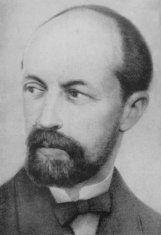
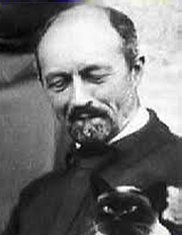 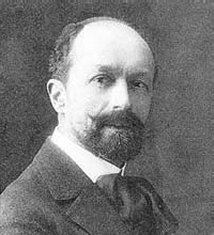
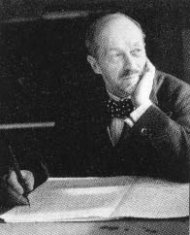
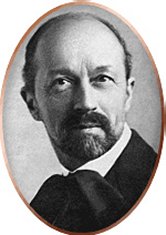 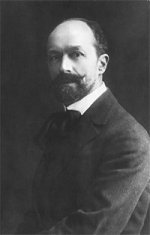
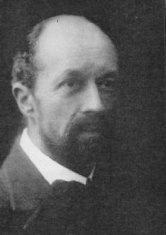
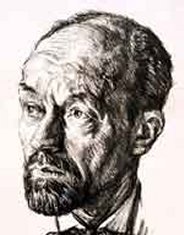
|
|
More Photos |
|
Source: Bakers Biographical Dictionary of 20th Century Classical Musicians (1997); Wikipedia Website (February 2011)
Contributed by Aryeh Oron (February 2011) |
|
Albert Roussel : Short Biography | Bach-inspired Piano Works: Works | Recordings |
|
Links to other Sites |
|
Albert Roussel (Wikipedia)
Albert Roussel by David C.F. Wright [PDF]
Albert Roussel (Musicologie.org) [French]
Albert Roussel (Classical Net) |
Albert Roussell (Classical Composers Database)
Albertr Roussel (Classical Archives)
Albert Roussel - Biography (Naxos) |
|
Bibliography |
|
L. Vuillemin : Albert Roussel et son oeuvre (Paris, 1924)
A. Hoérée: Albert Roussel (Paris, 1938)
N. Demuth: Albert Roussel: A Study (London, 1947)
R. Bernard: Albert Roussel: Sa vie, son oeuvre (Paris, 1948)
M. Pincherle: Albert Roussel (Geneva, 1957)
B. Deane: Albert Roussel. (London, 1961)
J. Eddins: The Symphonic Music of Albert Roussel (diss., Florida State University, 1967)
A. Surchamp: Albert Roussel (Paris, 1967)
Henry Doskey, D.M: The Piano Music of Albert Roussel, (Indiana University, 1981) 109 p., musical examples
R. Follet: Albert Roussel: A Bio-Bibliography (Westport, Connecticut, 1988)
Manfred Kelkel and M. Cusin: Colloque international Albert Roussel, 1869-1937 (1987, Lyon, France and Saint-Etienne, Loire, France (J. Vrin, Paris, 1989). Buy this book at: Amazon.com
Damien Top (editor): Albert Roussel, un marin musicien. (Séguier, 2000) |
|
|